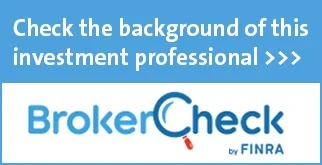Will I Pay Penalties If I Use Money in My Health Savings Account for Non-Medical Purposes?
Many people have health savings accounts that they primarily use to pay for medical expenses. Sometimes, however, people want or need to use funds in these accounts for non-medical expenses. If you’re considering using money in a health savings account for non-medical expenses, here’s a look at the penalties you might pay and other solutions that could help you avoid these penalties.

If I Use Money in My Health Savings Account for Non-Medical Purposes, Will I Pay Penalties?
Health Savings Accounts Are for Medical Expenses
Health savings accounts are specifically intended to give account holders tax breaks when they use money in an account for qualified medical expenses. The IRS defines medical expenses as “the costs of diagnosis, cure mitigation, treatment or prevention of disease, and the costs or treatments affect any part or function of the body.” They may include payments for medical services, equipment and supplies.
Some examples of costs that usually qualify as medical expenses include payments made for:
- Doctors and dentists appointments
- Operations and surgeries
- Ambulance rides
- Prescription medications
- Diagnostic services (e.g. X-rays)
(This isn’t a comprehensive list.)
{{cta(‘040b805d-073d-44cb-aa7d-ebc878c07207′,’justifycenter’)}}
Using Funds for Non-Medical Purposes Results in Penalties
When health savings accounts aren’t used for their intended purposes, account holders are often assessed penalties.
When an account holder under the age of 65 uses their health savings account’s funds for non-medical expenses, they have to pay income tax on the money spent plus a 20-percent penalty. Thus, they not only lose the tax benefit of having a health savings account, but they also have to pay a one-fifth penalty for funneling money through the account.
Combined, an account holder’s income tax and the 20 percent penalty could effectively be a 59.6 percent penalty for using funds in an HSA for non-medical expenses. (This is based on 2017’s highest tax bracket of 39.6 percent. Many account holders will pay a lower income tax rate, but even an individual in the lowest, 10-percent income tax bracket will likely pay a combined 30-percent penalty.)
For account holders over the age of 65, income tax is assessed on any funds that are used for nonmedical purchases. There isn’t an additional 20-percent penalty, though.

Alternative Solutions for a Health Savings Account
With a penalty of 20-percent plus your income tax rate, it’s obviously preferable to avoid using HSA funds for non-medical expenses. There are several ways to avoid using funds for non-medical purchases.
First, you can use the money already in your HSA for qualified medical expenses that aren’t necessarily essential medical expenses. In other words, spend the money in your account on qualified items and services, but ones that you don’t necessarily have to get. For example, you might want to:
- Purchase a pair of prescription sunglasses
- Stock up on bandages or birth control pills
- Invest in higher-end hearing aids
- Enroll in a stop-smoking program
- Being a weight-loss program
- Buy a nicer wheelchair
- See a chiropractor in Massachusetts
All of these items usually count as qualified medical expenses, making them perfect items to buy if you need to use up funds in an HSA.
Second, you can often simply let the money in an HSA rollover. The money in HSAs usually doesn’t disappear at the end of the calendar year, so you can let it accumulate in case you have a major medical expense in the next year.
Third, you can make changes to your HSA contributions, and you can do so at any time of the year. Reducing or even stopping your HSA contributions mid-year won’t decrease how much is already in your account, but it will let you divert planned future contributions to non-medical expenses without paying the 20-percent penalty.
{{cta(‘be451ad4-2d75-4517-871f-c100796d81fe’,’justifycenter’)}}
Work with an Advisor to Find a Solution
Before you use any health savings account funds for a non-medical purchase, contact an advisor who’s familiar with these types of accounts. A knowledgeable advisor will be able to help you explore all your other options, one of which might keep you from paying a significant penalty.
Get A Quote




